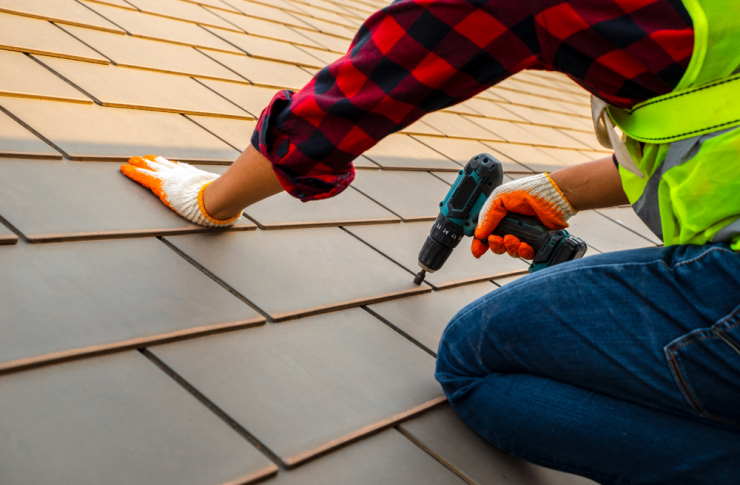Trik investasi: Cara Mendapatkan Keuntungan dari Membeli Rumah Milik Bank dan Memahami Proses Penyitaan
In today's dynamic real estate market, savvy buyers are turning their attention to repossessed houses as a potential avenue for securing affordable properties. This comprehensive guide explores the intricacies of purchasing bank-owned homes in Indonesia, shedding light on the opportunities and challenges that await prospective buyers.
What are repossessed houses and how do they end up on the market?
Repossessed houses, also known as bank-owned properties or foreclosures, are homes that have been reclaimed by financial institutions due to the previous owner’s inability to meet mortgage payments. Economic downturns, job losses, or unexpected financial hardships can lead to borrowers defaulting on their loans, prompting banks to seize the property as collateral. These homes are then put up for sale to recover the outstanding debt.
Why are repossessed houses often sold at lower prices?
Banks are not in the business of property management and typically aim to sell repossessed houses quickly to recoup their losses. This urgency often translates to lower asking prices compared to similar properties on the open market. Additionally, these homes may require repairs or renovations, further contributing to their reduced price tags. For buyers willing to invest time and effort, this presents an opportunity to acquire property at a significant discount.
What are the potential benefits of buying a repossessed house in Indonesia?
Investing in bank-owned properties can offer several advantages for Indonesian homebuyers. Firstly, the lower purchase price allows buyers to enter the property market with a smaller initial investment. This can be particularly appealing in urban areas where housing costs are typically high. Secondly, buyers may have the opportunity to purchase properties in desirable locations that would otherwise be out of their price range. Lastly, for those with renovation skills or connections to contractors, there’s potential to add significant value to the property through strategic improvements.
What challenges should buyers be aware of when considering repossessed houses?
While the prospect of purchasing a repossessed house can be enticing, it’s essential to approach the process with caution. These properties are typically sold “as-is,” meaning the buyer is responsible for any necessary repairs or renovations. Conducting a thorough inspection is crucial to understand the full extent of work required. Additionally, the legal process of buying a repossessed house can be more complex than a standard property transaction, often involving additional paperwork and potential delays.
How can buyers navigate the process of purchasing a repossessed house?
To successfully purchase a repossessed house, buyers should start by researching bank listings and attending property auctions. It’s advisable to work with a real estate agent experienced in foreclosure sales, as they can provide valuable insights and guide you through the process. Securing pre-approval for financing is also crucial, as it demonstrates your ability to complete the purchase and can give you an edge in competitive situations. Be prepared for a potentially longer closing process and have contingency funds available for unexpected repairs or legal fees.
What impact do repossessed house sales have on local communities?
The sale of repossessed houses can have both positive and negative effects on local communities. On one hand, it provides opportunities for individuals to become homeowners and invest in their neighborhoods. This can lead to property improvements and increased community engagement. However, a high concentration of foreclosures in an area can negatively impact property values and potentially lead to neighborhood decline if properties remain vacant for extended periods.
To mitigate these issues, some local governments and community organizations in Indonesia have implemented programs to assist buyers in purchasing and renovating repossessed properties. These initiatives aim to stabilize neighborhoods and promote sustainable homeownership.
| Bank | Repossessed Property Types | Average Discount from Market Value | Financing Options |
|---|---|---|---|
| Bank Mandiri | Single-family homes, apartments | 20-30% | Conventional mortgages, special foreclosure loans |
| BCA | Residential and commercial properties | 15-25% | Conventional mortgages, installment options |
| BNI | Houses, land parcels | 25-35% | Conventional mortgages, auction financing |
| BTN | Affordable housing units | 10-20% | Government-backed loans, conventional mortgages |
Prices, rates, or cost estimates mentioned in this article are based on the latest available information but may change over time. Independent research is advised before making financial decisions.
In conclusion, buying a repossessed house in Indonesia can be a pathway to affordable homeownership or a lucrative investment opportunity. However, it requires careful consideration, thorough research, and a willingness to navigate potential challenges. By understanding the process and working with experienced professionals, buyers can make informed decisions and potentially secure valuable real estate assets at competitive prices.
The shared information of this article is up-to-date as of the publishing date. For more up-to-date information, please conduct your own research.





